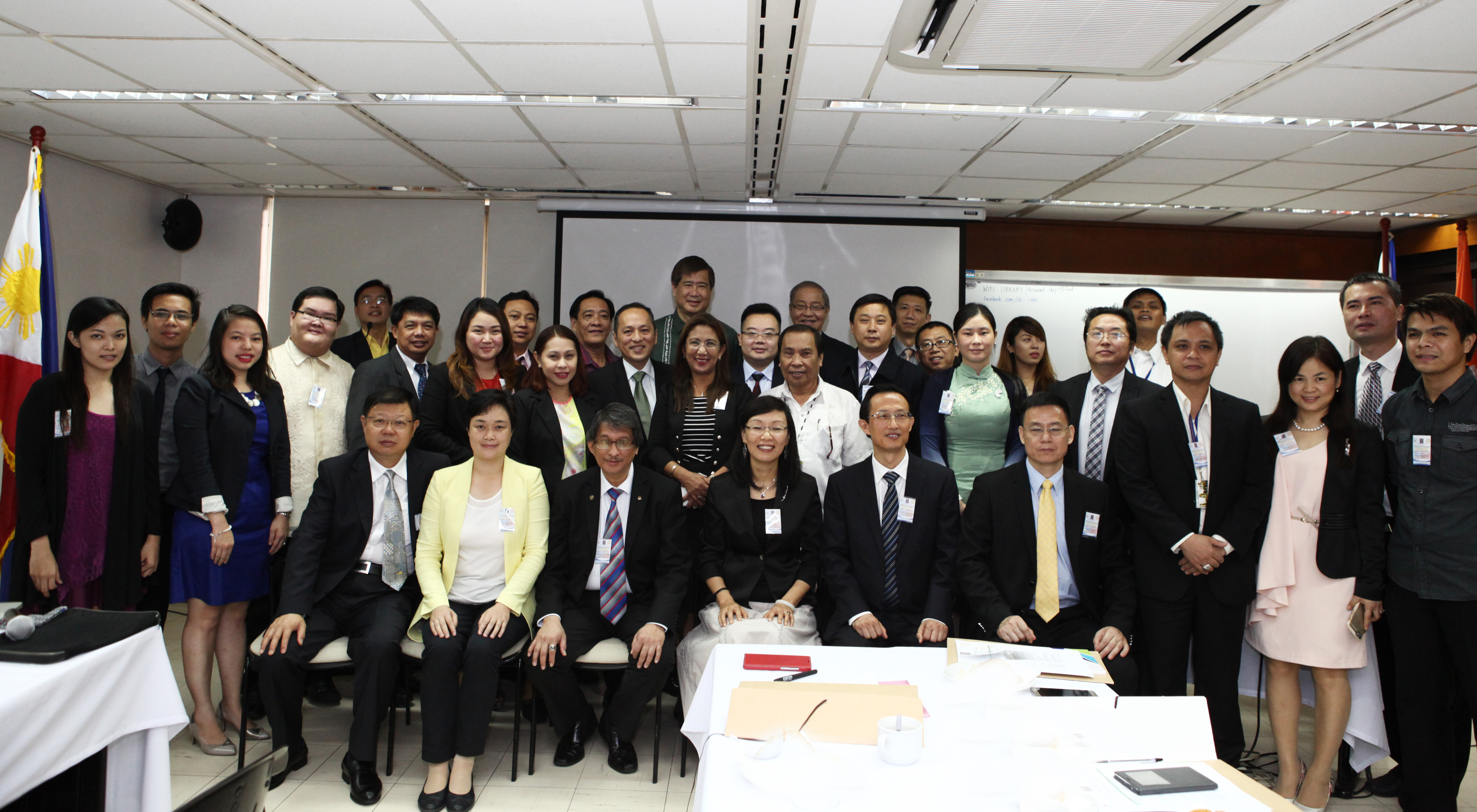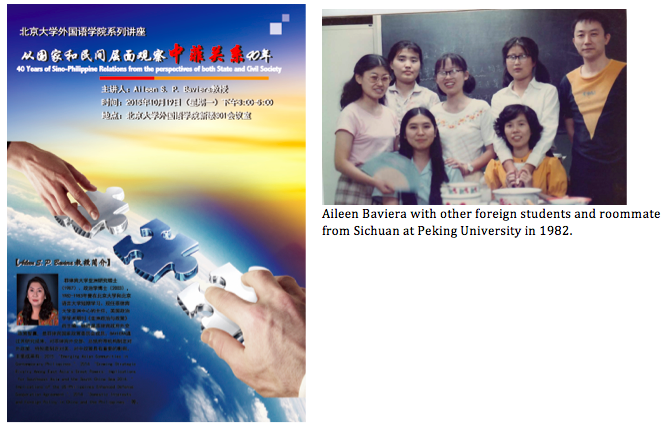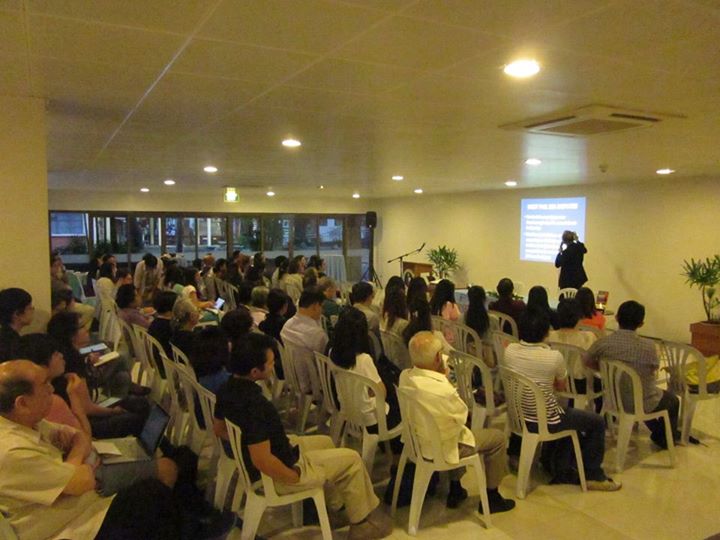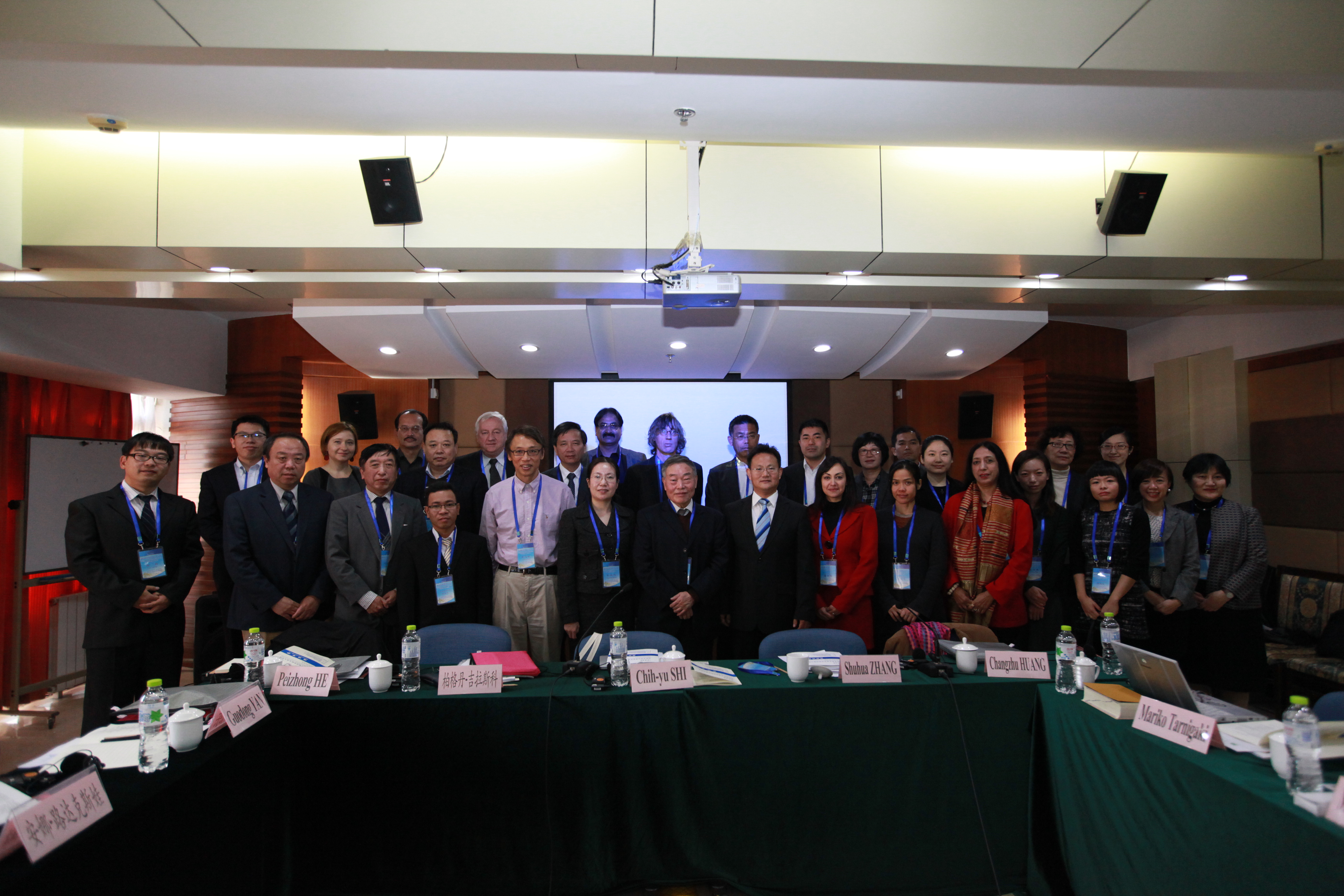Editor's Note
Presidential Elections and the Country’s Foreign Policy

In the run-up to the May presidential elections, candidates will be held to close scrutiny by the thinking members of the electorate. How well have have they thought out the major problems of the country and the potential solutions that can best serve the long-term interests of the Filipino people, instead of the expedient solutions or promises that can merely help get them elected?
Featured commentaries of the month
AIIB and the US – China Competition for Influence
The world economy has long been dominated by institutions heavily influenced by the West and its allies. However, a new player in the form of the Asian Infrastructure Investment Bank (AIIB) has arrived at the scene, causing a stir and sparking debates and discussions on its implications for the world economy and global order in general.
Moving Beyond the Jurisdiction Victory in the West Philippine Sea
The October 29 decision of the Permanent Court of Arbitration stating that it has jurisdiction over the case initiated by the Philippines against China was a landmark victory for the Philippines and a potential milestone for the international law of the sea. In a way, the decision gave some sense of vindication to the approach taken by the Aquino Administration in an attempt to put to rest the longstanding dispute over the West Philippine Sea (WPS). However, while the early partial jurisdiction decision was very much welcomed, it is still too early to predict how the tribunal would decide on the merits of the case and how long that process will take. In addition, the Tribunal maintained that jurisdiction over seven of the fifteen claims made by the Philippines would still be decided in conjunction with the merits and one claim has to be further narrowed down and clarified. For now, the jubilation from the partial jurisdiction triumph gave a respite to the painstaking sacrifices made in pursuit of this legal approach. But when the dust settles, with an eye on winning the decision over the merits, the Philippine leadership should begin preparing how to make good use of its legal ascendancy in dealing with China pre- or post-merit decision.
Philippines v. China: The Endgame as Prelude
With the conclusion of the oral arguments on the merits phase last month, the arbitration initiated by the Philippines against China finally moves into the endgame. Although China was given one final opportunity until 01 January 2016 to submit comments on the arguments and evidence presented thus far, it is not expected to do so. The Tribunal has announced commencement of deliberations and that it will decide the case next year.
APPFI events
Philippines and China Local Government Executives Exchange Experiences on Sustainable Communities

PASIG CITY, PHILIPPINES – Last November 13, 2015, the Development Academy of the Philippines (DAP), Department of Foreign Affairs (DFA), Embassy of the People’s Republic of China, Chinese People’s Association for Friendship with Countries (CPAFFC), Philippine Association for Chinese Studies (PACS) and Asia Pacific Pathways to Progress Foundation Inc. (APPFI) co-organized a policy dialogue among local executives from China and the Philippines on Sustainable Communities: Developing Dialogues for Local Governance. The event was a brainchild of Undersecretary and APEC pointperson Laura del Rosario of the Department of Foreign Affairs with Dr. Carlos Tabunda Jr, Executive Fellow of DAP, as a project coordinator.
Intellectual History Project and Conference
The “Oral History of China Studies Scholars in the Philippines” is part of an international project on China Studies, which has produced more than one hundred individual narratives from all over the world. The research team, headed by Dr. Tina S. Clemente of the Asian Center, U.P. Diliman, collaborates with the global proponent, Prof. Chih-Yu Shih of the National Taiwan University, distinguished professor of China studies, international relations and political science.
Promoting Philippine Studies in Beijing

APPFI President and UP Professor Aileen Baviera delivered a lecture on Philippines-China relations before students and professors of the Philippine studies program at Peking University on October 19, 2015. How relations had developed in the last 40 years was the subject of her talk. She came upon the invitation of program director Prof Wu Jiewei. During her lecture, Dr Baviera recalled the years 1982-83 when she was a foreign student at Peking University, as one of only three Filipino exchange students sent during the first year of implementation of the cultural agreement of the two governments.
Xiangshan Forum and Chinese Military Diplomacy

The 6th Xiangshan Forum was held in Beijing on October 17-18, 2015. With close to 500 participants this year - mainly defense personnel and security experts and scholars from 49 countries and 5 international organizations - the forum was a platform for Chinese security experts and the PLA to articulate their views on the regional and global security environment, and to demonstrate the close defense networks China had built across several continents. Beginning as a twice-yearly event in 2006, the Forum has now become an annual gathering and has been upgraded by its organizers from Track 2 (unofficial) to Track 1.5 (semi-official) in nature. This year, APPFI president and University of the Philippine Professor Aileen Baviera, along with another UP professor Dr. Aries Arugay, were the only nongovernmental participants from the Philippines. A delegation from the Department of Defense was led by Undersecretary Pio Lorenzo F. Batino.
APPFI Board Member Accompanied DLSU Mission to Forge Ties with Three Leading Chinese Universities

Dr. Wilfrido Villacorta, Board Member of the Asia Pacific Pathways to Progress Foundation, Inc. (APPFI), was invited to be the adviser to the De La Salle University delegation, which successfully reached agreements with three of China’s top universities. The educational mission took place from 22-28 November, 2015.
Friends & Partners
Philippine Association for Chinese Studies

Since its establishment in 1987, the Philippine Association for Chinese Studies (PACS) has strived to promote knowledge exchange and facilitate contacts among scholars and professionals who take an active interest in the study of China and the Chinese, Philippines-China relations, and the ethnic Chinese in the Philippines. Its activities include organizing seminars, holding national as well as international conferences, producing publications, and conducting study visits and dialogues. The organization has also partnered with other academic, professional, national and international organizations that share its interests, including the UP Asian Center, Ateneo de Manila’s Chinese Studies Program, World News Daily, KAISA Para sa Kaunlaran, the Philippine Social Science Council, and Asia Pacific Pathways to Progress Foundation, Inc.

